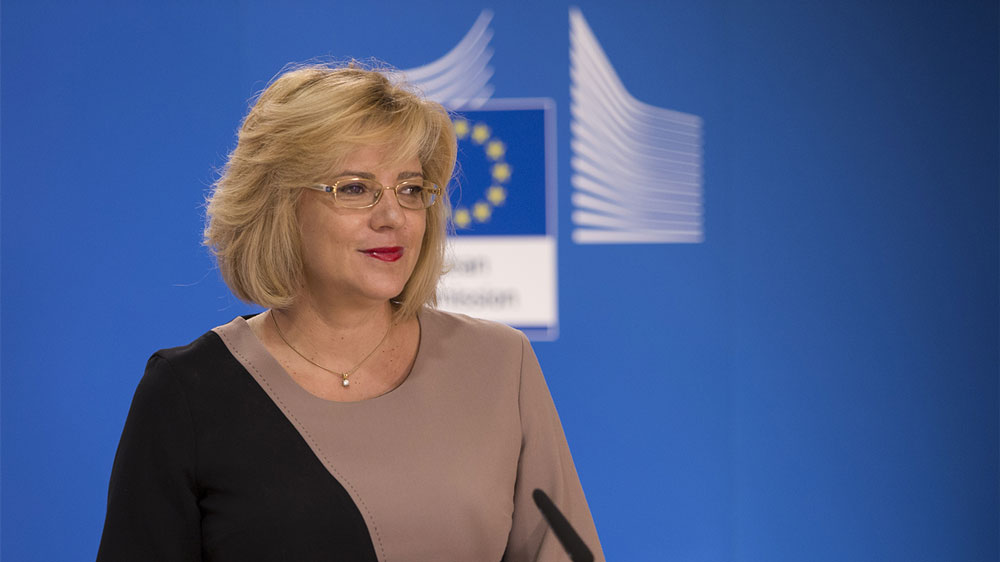‘Stairway to Excellence’ helps Europe’s regions become more innovative
The European Commission is renewing the initiative ‘Stairway to Excellence’, to continue to provide tailored support and expertise to regions lagging behind in terms of innovation.
The initiative will help regions develop, update and refine their smart specialisation strategies – that is, their regional innovation strategies based on niche areas of competitive strengths – ahead of the start of the 2021-2027 budgetary period. It will also help them identify adequate EU resources to finance innovative projects, and pair up with other regions with similar assets to create innovation clusters.
Following the Commission’s proposals for the future Cohesion Policy, the new ‘Horizon Europe’ programme, and in line with the Commission’s renewed agenda for Research and Innovation, ‘Stairway to Excellence’ is another way the Commission is helping Europe’s regions prepare for the future, with solid innovation strategies supported by EU funds in the next long-term EU budget for 2021-2027.
“Smart specialisation will be more important than ever in the post-2020 period. For these strategies to express their full potential in the coming years, we need two things: more partnership and more ownership, especially in those regions that need to catch up the most. This initiative will help prepare the ground for solid innovation strategies in the post 2020 period,” Commissioner for Regional policy Corina Cretu stated.
“We have just proposed the most ambitious EU research and innovation funding programme yet, Horizon Europe, with EUR 100 billion for 2021-2027. This also means more opportunities for regions to make the most of their research and innovation potential. ‘Stairway to Excellence’ will help them combine EU funding streams to finance innovative projects,” Carlos Moedas, Commissioner for Research, Science and Innovation, added.
“Under this initiative, the Joint Research Centre – the Commission’s science and knowledge service – will use its expertise to help regions build on their strengths and priorities, learn from each other and make the most of their most valuable assets: people’s talents and creativity,” Tibor Navracsics, Commissioner for Education, Culture, Youth and Sport, mentioned.
The initiative, coordinated by the Joint Research Centre, will give regions four main forms of support:
- Commission and external experts will help regions spot areas for improvement in their smart specialisation strategies, in their regional innovation systems (quality of public research, efficient business-science links and business-friendly environments) and in the way they cooperate with other regions in the fields of research and innovation.
- Experts will also help them tap into all potential funding streams, such as Horizon Europe, Digital Europe and Cohesion Policy funds, and combine them thanks to new opportunities for synergies, offered by the Commission’s proposals for EU funds 2021-2027.
- The Joint Research Centre will help identify and remedy specific regional bottlenecks to innovation, such as lack of interaction between local business spheres and academia or low participation in the current Horizon 2020 programme.
- The Joint Research Centre will also organise networking opportunities and workshops for regions to meet and exchange good practices in building regional innovation strategies. This will also facilitate the development of partnerships for interregional innovation investments.
Next steps
The renewed initiative will start this summer, for 2 years. Regions can flag their interest and participate via the Smart Specialisation Platform.
Background
The ‘Stairway to Excellence’ initiative was launched in 2014, in partnership with the European Parliament, when smart specialisation became a requirement under Cohesion Policy rules. It has been renewed every year with different work programmes and priorities. For 2018-2019, it is focused on preparing the next long-term EU budget, building on the method of the 2017 smart specialisation pilot actions. The initiative has a budget of EUR 3 million for these two years, made available by the European Parliament.







